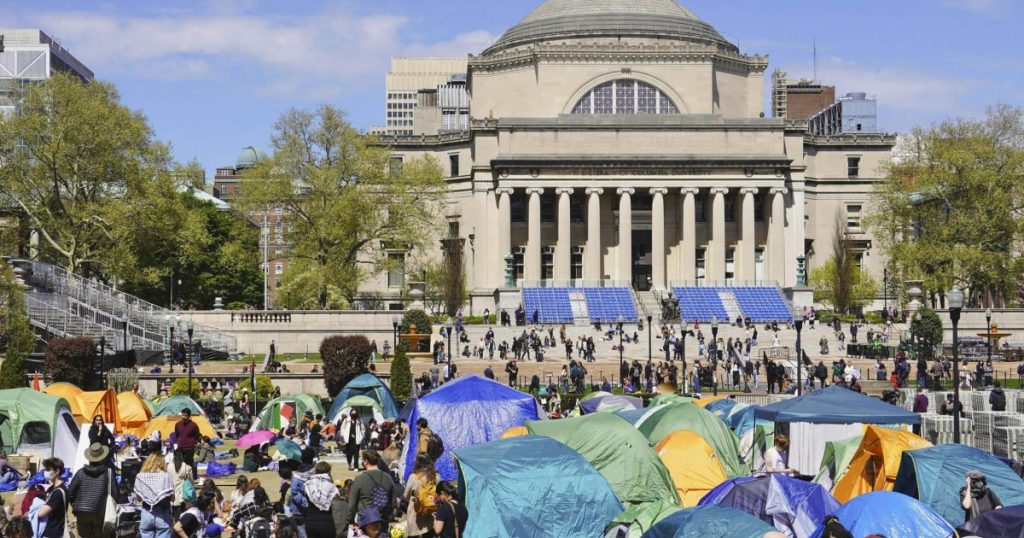Student protests at Columbia University demanding the withdrawal of investments tied to Israeli companies have reached a stalemate with university officials. The protestors have been camped out on the campus’ West Lawn for over a week, with talks showing progress but no resolution in sight. The students are concerned about possible law enforcement intervention to remove them from the site. The university has threatened the possible involvement of the National Guard and NYPD, adding tension to the situation.
Negotiations between student representatives and university officials are ongoing, but there is no clear timeline for resolution. The students are calling for Columbia to divest from companies profiting from Israeli foreign policy in Gaza and the West Bank. The university has only made vague commitments to investigate its investments further. With final exams approaching and commencement ceremonies on the horizon, pressure is mounting for the campus to return to normalcy. The protestors are skeptical of the university’s intentions, emphasizing that trust is lacking between the two parties.
The Columbia protest has inspired similar actions among students at other major universities across the United States, including the University of Southern California. USC students have raised concerns after a Muslim student had her valedictorian speech canceled due to unspecified security threats. These protests are part of a broader movement against the Israel-Hamas conflict, with students demanding accountability and action from their institutions. The cancellation of events and speeches, including USC’s star-studded commencement ceremony, reflects the impact of these protests on university operations.
The Israeli-Palestinian conflict has been a central issue in the student protests, with a focus on holding institutions accountable for their investments and positions related to the conflict. The Columbia University protest has drawn attention to divestment as a form of activism, highlighting the power of students to bring about change on campus. The involvement of law enforcement in potentially clearing the encampment adds a layer of concern for the protestors, who are determined to see their demands met. As talks continue without a clear resolution, the standoff between students and the university persists.
Despite the ongoing negotiations, progress has been reported, and discussions are ongoing to address the concerns raised by the protestors. Both student representatives and university officials are engaged in dialogue to find a resolution to the impasse. The students remain committed to their cause and are prepared to continue their protest until their demands are met. The situation at Columbia University reflects a broader trend of student activism and political engagement on college campuses nationwide, with students taking a stand on issues that are important to them. The outcome of the negotiations will have implications not only for Columbia but for the broader campus activism movement.


